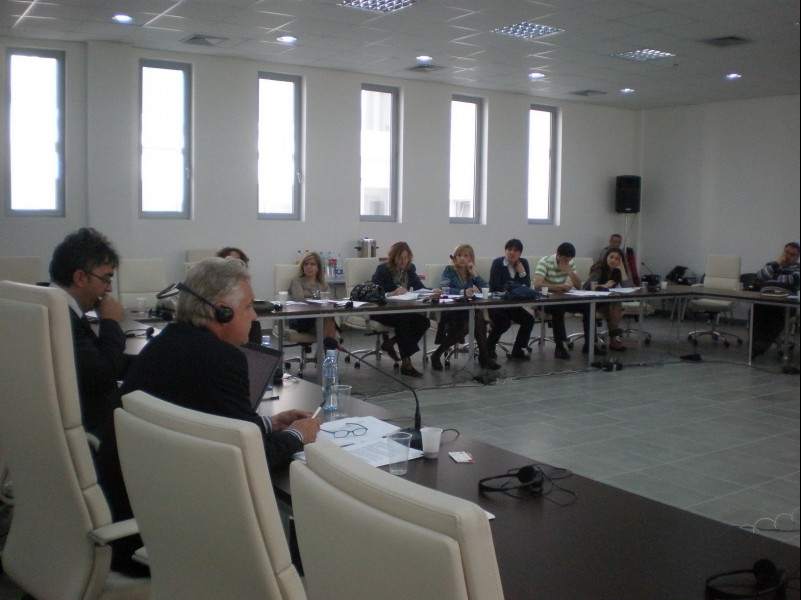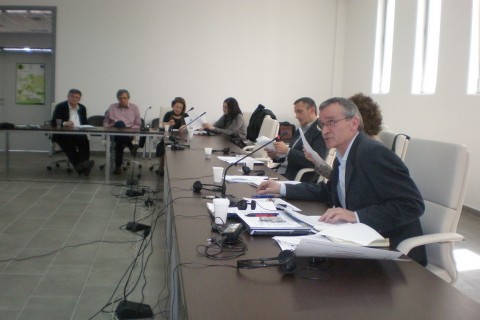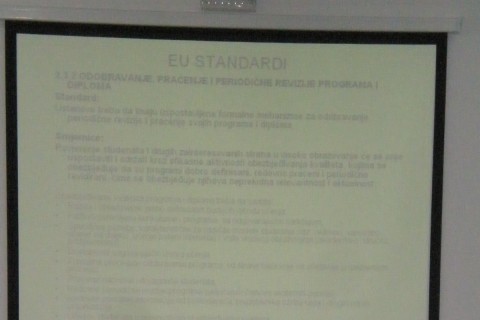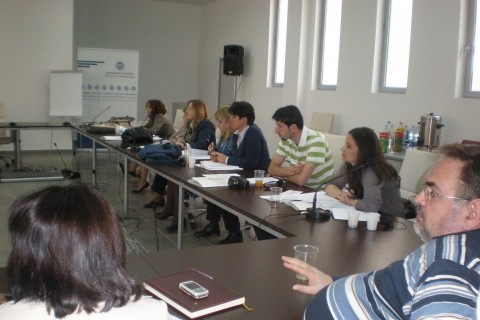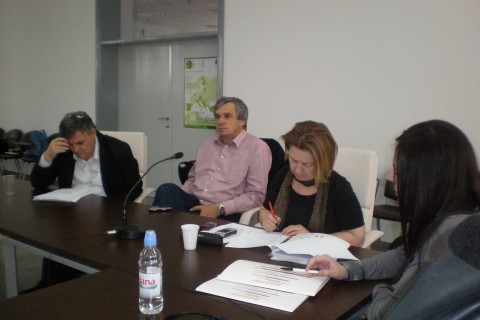Quality Assurance Controversial Topics Workshop at the University of Montenegro
Podgorica. Considering the fact that WUS Austria, in partnership with the University of Montenegro, is implementing the Quality Assurance (QA) project in order to build up institutional mechanisms in accordance with modern practice and EU standards and contribute to improved university management, a workshop on which some of the controversial topics present in the area of quality assurance were discussed, was held on 9thof April in the Rectorate building. Agenda of the workshop is available here.
The participants who attended the workshop were members of the Governing Board, extended Rector’s Collegium, members of the team for implementation of QA, and representatives of the Student Parliament.
Expert of WUS Austria was Professor Roland Arrich who presented the experiences in implementation of quality assurance system at the Universities in Austria. He also made a comparison with the University of Montenegro and gave some ideas for adoption of guidelines for future tasks. Presentations of Professor Arrich were related to PDCA cycles (Plan – Do – Check – Act), newrole and new power of the Governing Board and Councils), new ways of cooperation between the Rectorate and faculties, consequences for study programmes and research and development, student evaluations, internal and external evaluation, and an example for an external evaluation: “PEER REVIEW”. Prof Arrich’s presentation is available here.
For the purpose of discussion, representatives of the University of Montenegro also had prepared presentations. Those were presentations of Prof. dr Predrag Mijanovic, Prof. dr. Nenad Soskic, Prof. dr Drazen Cerovic, and of MA Marija Ivanovic.
Prof. dr Mitar Misovic gave presentation on external evaluation and re-accreditation which was followed up by discussion. The discussion was mainly focused on controversial topics such as: Governing Board and the Councils who are authorized to adopt strategic decisions that are binding for the management of the University and faculties, cooperation between Rectorate and faculties, division of finances, study programmes, and the attitude of students towards studying.
Many useful conclusions were brought at the workshop and future collaboration with professor Arrich has been arranged which in the time to come will most definitely be beneficial for the University of Montenegro.

